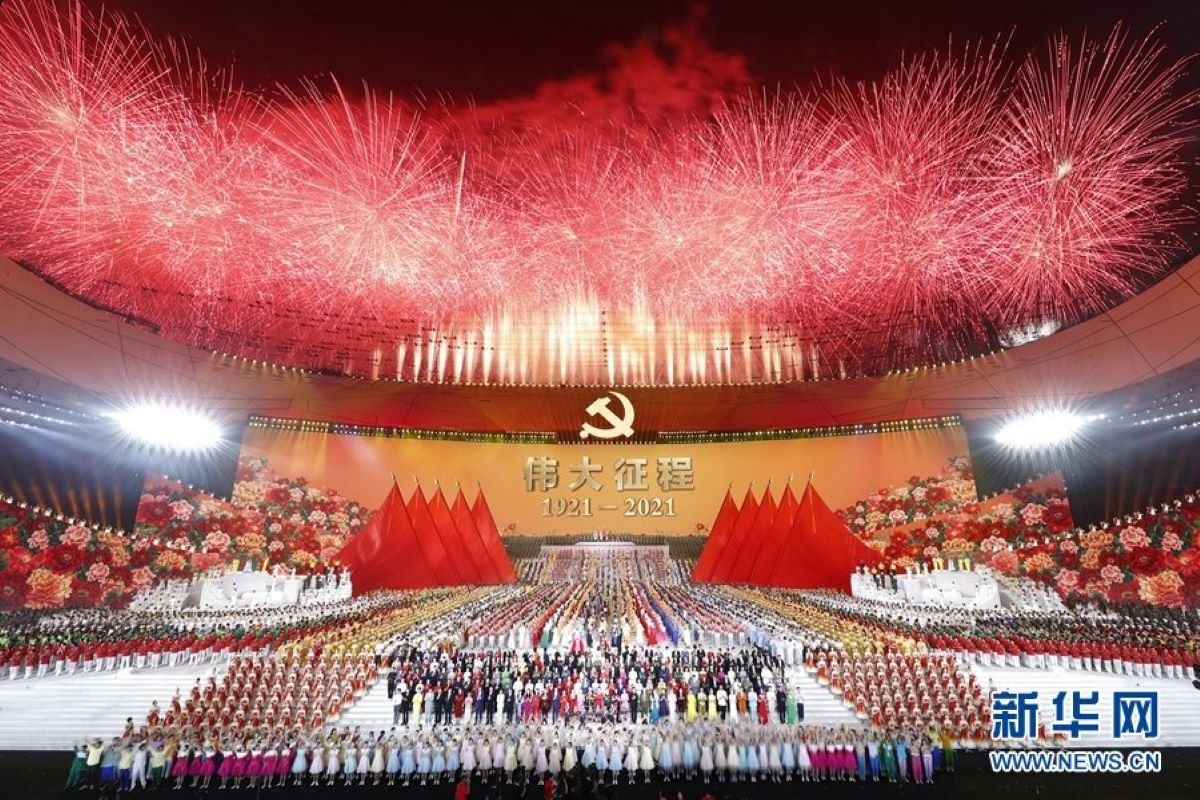Still unexplained
The hunt for the origins of Covid-19 has for the past four years been a tangled web of politics, power struggles, and international finger-pointing.
The party has long invoked its history to justify its right to rule, said Joseph Fewsmith, a professor of Chinese politics at Boston University

IANS
It will be eulogising the past and solidifying the future of Chinese President Xi Jinping as China’s Communist Party will celebrate its 100th birthday on 1 July.
Its members have been exhorted to remember the primitive homes where Mao Zedong and his followers lived and the early days of struggle in the inland city of Yan’an.
From the 1930s, when the party established itself, China has galloped economically and emerged as the nation of salubrious cities with global markets in Beijing, Shenzhen, dotted with skyscrapers and other high-tech centres.
Advertisement
“By linking the party to all of China’s accomplishments of the past century, and none of its failures, Xi is trying to bolster support for his vision, his right to lead the party and the party’s right to govern the country,” said Elizabeth Economy, a senior fellow at Stanford University’s Hoover Institution.
This week’s celebrations focus on two distinct eras – the early struggles and recent achievements – circumventing over the nearly three decades under Mao from the 1950s to 1970s, when mostly catastrophic social and economic policies left millions dead and the country impoverished.
To that end, a spectacular outdoor gala attended by Xi in Beijing on Monday night relived the Long March of the 1930s – a retreat to Yan’an that has become of party lore – before moving on to singing men holding giant wrenches and women with bushels of wheat.
But it also focused on the present, with representations of special forces climbing a mountain and medical workers battling Covid-19 in protective gear.
The party has long invoked its history to justify its right to rule, said Joseph Fewsmith, a professor of Chinese politics at Boston University.
Shoring up its legitimacy is critical since the party has run China single-handedly for more than 70 years – through the chaotic years under Mao, imploding of the Soviet Union and through the unexpected adoption of market-style reforms.
Many Western policymakers and analysts believed that capitalism would transform China into a democracy as its people prospered, following the pattern of former dictatorships such as South Korea and Taiwan.
The Communist Party has confounded that thinking, taking a decisive turn against democracy when it cracked down on large-scale protests in Beijing’s Tiananmen Square in 1989 and quashing any challenges to single-party rule in the ensuing decades – most recently all but extinguishing dissent in Hong Kong after anti-government protests shook the city in 2019.
Its leaders have learned the lesson of the Soviet Union, where the communists lost power after opening the door to pluralism, said Zhang Shiyi of the Institute of Party History and Literature.
China is still a middle-income country, but its very size makes it the world’s second-largest economy and puts it on a trajectory to rival the US as a superpower.
In the meantime, it has doubled down on its repressive tactics, stamping out dissent.
While it is difficult to gauge public support for the party, it has likely been boosted at least in some quarters by China’s relative success at controlling the Covid-19 pandemic and its standing up to criticism from the US and others.
“We have never been so confident about our future,” Foreign Ministry spokesperson Hua Chunying told journalists on a recent trip to the party’s historic sites in Yan’an.
Tiananmen Square, where Mao proclaimed the founding of communist China in 1949, is no longer a home for student protesters with democratic dreams.
While most details remain under wraps, authorities have said that Xi will give an important speech.
The anniversary marks a meeting of about a dozen people in Shanghai in 1921 that is considered the first congress of the Chinese Communist Party – though it actually started in late July.
The festivities will likely convey the message that the party has brought China this far, and that it alone can lift the nation to greatness – arguing in essence that it must remain in power.
Xi also appears to be considering a third five-year term that would start in 2022, after the party scrapped term limits.
The centennial is at once a benchmark to measure how far the country has come and a moment for Xi and the party to move toward their goals for 2049, which would mark the 100th year of communist rule, said Alexander Huang, a professor at Tamkang University in Taiwan.
“Whether they can achieve that goal is the biggest challenge for the Chinese leadership today,” he said, noting growing tensions with other countries, an aging population and a young generation.
“In the United States, you only talk, talk, talk,” said Hua of the Foreign Ministry. “You try to win votes. But after four years, the other people can overthrow your policies. How can you ensure the people’s living standards, that their demands can be satisfied?”
Advertisement